Recent Blog Posts
Fighting Back Against Abusive Debt Collectors Through Bankruptcy
 Struggling with growing debt obligations while enduring threatening collection calls and letters can make daily life feel unbearable. Professional debt collectors are required to follow fair practices per the federal Fair Debt Collection Practices Act and the Texas Debt Collection Act. However, many continuously disregard the law and start harassing communications that violate borrowers’ rights. When you feel bombarded, mistreated, and unable to keep up with payments plus interest, leveraging bankruptcy may offer critical protection. A lawyer in Texas can help you determine the next step for your specific situation and what to do about this.
Struggling with growing debt obligations while enduring threatening collection calls and letters can make daily life feel unbearable. Professional debt collectors are required to follow fair practices per the federal Fair Debt Collection Practices Act and the Texas Debt Collection Act. However, many continuously disregard the law and start harassing communications that violate borrowers’ rights. When you feel bombarded, mistreated, and unable to keep up with payments plus interest, leveraging bankruptcy may offer critical protection. A lawyer in Texas can help you determine the next step for your specific situation and what to do about this.
Illegal and Unethical Collection Tactics
While collectors cannot legally deceive, misrepresent facts, or deploy harassment techniques, far too many break the rules, including through:
Can You Legally Get Out of a Personal Loan in Texas?
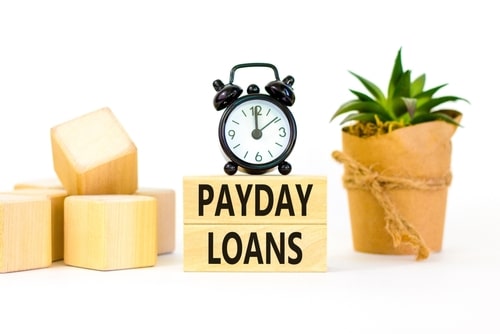 Taking out a personal loan provides fast access to cash when you need it. But if you fall behind on payments, the crushing debt can feel inescapable. Are there any legal avenues for relief from an overwhelming personal loan in Texas? You have a few options, but each has pros and cons to weigh carefully. A Texas lawyer can help you sort out your best options.
Taking out a personal loan provides fast access to cash when you need it. But if you fall behind on payments, the crushing debt can feel inescapable. Are there any legal avenues for relief from an overwhelming personal loan in Texas? You have a few options, but each has pros and cons to weigh carefully. A Texas lawyer can help you sort out your best options.
File for Bankruptcy
One way to legally discharge personal loan debt is through bankruptcy. The two primary bankruptcy routes in Texas are Chapter 7 and Chapter 13:
- Chapter 7 liquidates assets to pay creditors and eliminates remaining debts, including personal loans. To qualify, you must pass a ‘means test’ based on income and expenses. While it discharges the debt, a Chapter 7 bankruptcy can severely damage your credit for years.
- Chapter 13 restructures debts like personal loans into a 3-5 year repayment plan based on disposable income. This halts collections and gives you time to pay. But if you default on trustee payments, collections resume along with potential credit impacts.
Trapped in Never-Ending Payday Loan Debt? Learn Your Options
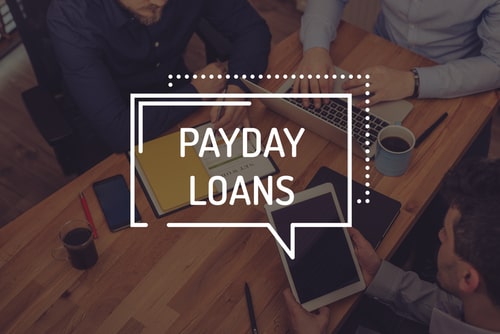 Payday loans carry shockingly high interest rates, often trapping borrowers in impossible-to-break cycles of growing debt. Thankfully, Texas law does provide options to regain control when payday loan payments become unmanageable burdens. A Texas lawyer can help you find out what options you may have for your specific situation and how you may be able to get out of it.
Payday loans carry shockingly high interest rates, often trapping borrowers in impossible-to-break cycles of growing debt. Thankfully, Texas law does provide options to regain control when payday loan payments become unmanageable burdens. A Texas lawyer can help you find out what options you may have for your specific situation and how you may be able to get out of it.
Understanding the Debt Trap Model
Payday lenders issue small, short-term loans at astronomical rates averaging 400-800% APR. Borrowers unable to repay in full within the very short duration of 2-4 weeks are forced to continually roll over the loan while paying only the excessive interest and fees. Lenders falsely claim these are "fees" rather than interest to cover up those fine print details. Harsh late penalties increase the balance even more. The debt quickly snowballs into a practically unpayable amount through this intentional business model.
Fighting Wrongful Foreclosure in Texas
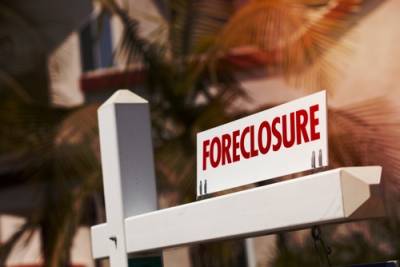 If you are a homeowner facing foreclosure in Texas and believe the proceedings against your property are wrongful or invalid, there are legal strategies you can pursue to contest the process and protect your rights. A Texas lawyer can help you with the steps on how to do this.
If you are a homeowner facing foreclosure in Texas and believe the proceedings against your property are wrongful or invalid, there are legal strategies you can pursue to contest the process and protect your rights. A Texas lawyer can help you with the steps on how to do this.
Common Grounds for Wrongful Foreclosure Claims in Texas
Homeowners may have a case to challenge a foreclosure based on procedural defects by the mortgage holder or servicer, such as:
- Failure to properly provide notice of default and intent to accelerate as required by Texas statute
- Not adhering to statutory timelines for filing notice with the county clerk
- Initiating foreclosure proceedings while a loan modification or repayment plan is pending
Can I Get My Car Back by Filing Chapter 13 Bankruptcy?
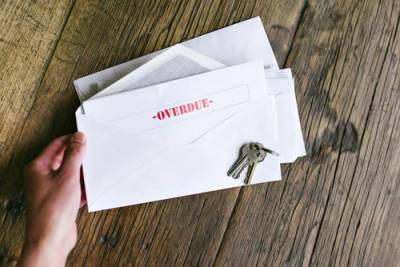 Filing for bankruptcy can be a daunting and complex process, with various chapters offering different solutions to financial challenges. For people struggling with overwhelming debts and the fear of losing their vehicle through a repossession, Chapter 13 bankruptcy might provide a potential solution. If your car has been taken away in the last ten days or you are concerned that it may be taken and you live in Texas, our lawyers can help you file for Chapter 13 so that you can get your car back. Here is how.
Filing for bankruptcy can be a daunting and complex process, with various chapters offering different solutions to financial challenges. For people struggling with overwhelming debts and the fear of losing their vehicle through a repossession, Chapter 13 bankruptcy might provide a potential solution. If your car has been taken away in the last ten days or you are concerned that it may be taken and you live in Texas, our lawyers can help you file for Chapter 13 so that you can get your car back. Here is how.
Understanding Chapter 13 Bankruptcy
Chapter 13 Bankruptcy, also known as a wage earner’s plan, allows people with regular income to restructure their debts and create a manageable repayment plan. Unlike Chapter 7 bankruptcy, which involves liquidating assets, Chapter 13 focuses on debt reorganization and repayment over three to five years.
What is Unsecured Debt in Bankruptcy Law?
 Bankruptcy is a legal process that provides individuals and businesses with a fresh start by eliminating and restructuring their debts. When navigating bankruptcy, it is essential to understand the distinction between secured and unsecured debt. If you are involved in bankruptcy proceedings in Texas, contact a lawyer to ensure your rights are protected as you move through the bankruptcy process in Texas.
Bankruptcy is a legal process that provides individuals and businesses with a fresh start by eliminating and restructuring their debts. When navigating bankruptcy, it is essential to understand the distinction between secured and unsecured debt. If you are involved in bankruptcy proceedings in Texas, contact a lawyer to ensure your rights are protected as you move through the bankruptcy process in Texas.
Definition of Unsecured Debt
Unsecured debt refers to any debt that is not supported by collateral or a specific asset. Unlike secured debt, which is tied to a specific property (such as a mortgage or car loan), unsecured debt is not directly linked to any particular asset. Examples of common unsecured debts include credit card debt, medical bills, personal loans, and certain types of student loans.
Avoiding Debt Traps with Payday Loans in Texas
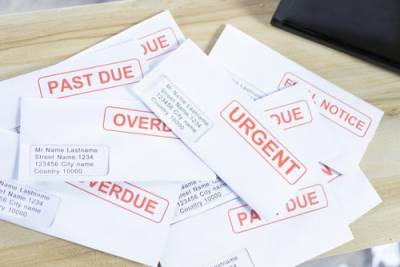 Fast cash needs may make payday loans look like a quick fix. But these short-term loans' high fees and interest rates can spell trouble for borrowers. Repaying on time gets harder when extra costs pile up, starting a debt cycle that is a struggle to escape.
Fast cash needs may make payday loans look like a quick fix. But these short-term loans' high fees and interest rates can spell trouble for borrowers. Repaying on time gets harder when extra costs pile up, starting a debt cycle that is a struggle to escape.
What Rules Exist for Payday Loans in Texas?
Texas regulates payday lending but does not cap fees or interest. With no limits, costs can soar and make repayment within the loan term tougher for borrowers. Payday loans typically range from $100 to $1,000 and are due when the borrower's next paycheck arrives. Failing to repay on time can mean extra fees to extend the loan or taking out a new one to cover the old debt. This can quickly add up and lead to an unmanageable situation.
Seeing the Risks of Payday Loans
The steep fees and rates on payday loans can prevent borrowers from paying them off by the due date. This starts a cycle of borrowing and debt that's hard to break.
Common Mistakes To Avoid When Filing For Bankruptcy in Texas
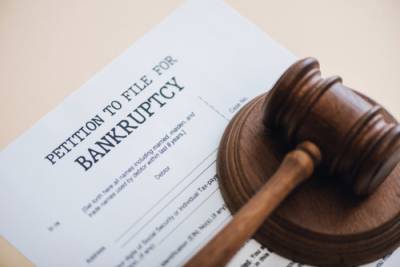 Bankruptcy proceedings, often seen as a last resort during severe financial adversity for individuals and businesses, can paradoxically offer a lifeline and the opportunity for a fresh start if managed correctly. Here are eight common mistakes to avoid if you need to file for bankruptcy in Texas.
Bankruptcy proceedings, often seen as a last resort during severe financial adversity for individuals and businesses, can paradoxically offer a lifeline and the opportunity for a fresh start if managed correctly. Here are eight common mistakes to avoid if you need to file for bankruptcy in Texas.
Dismissing Bankruptcy as a Potential Debt Management Solution
Bankruptcy can strike fear in many, given its stigma and possible repercussions on your credit record, deterring you from exploring this avenue. However, outright refusal to consider bankruptcy a potential solution could prolong your financial difficulties. Bankruptcy can allow the restructuring or even eliminate some debts, marking it as a feasible strategy in numerous scenarios.
Procrastinating and Hesitating
A recurring error is waiting too long or deferring the choice to file for bankruptcy. This often leads to people incurring late charges, penalties, and accrued interest, which compounds their financial plight. It is imperative to consult a legal expert promptly when your debts appear unmanageable to circumvent the problem's escalation.
Navigating Divorce and Bankruptcy in Texas: A Guide to Protecting Your Financial Future
 Divorce and bankruptcy can be overwhelming experiences. Specific rules regarding the division of assets, debts, and other financial matters must be considered when going through a divorce or filing for bankruptcy in Texas. It is essential to understand these laws to protect your financial future.
Divorce and bankruptcy can be overwhelming experiences. Specific rules regarding the division of assets, debts, and other financial matters must be considered when going through a divorce or filing for bankruptcy in Texas. It is essential to understand these laws to protect your financial future.
Understanding the Connection Between Divorce and Bankruptcy
In the United States, financial problems are a major reason for divorce. Dividing assets, paying legal fees, and adjusting to living on a single income during a divorce can create financial strain, leading to bankruptcy. On the other hand, bankruptcy can also stress a marriage and divorce.
When to File for Bankruptcy and Divorce
Filing for bankruptcy and divorce simultaneously can cause complications and negatively affect both processes. It is recommended to keep them separate unless there is a significant joint debt situation. If this is the case, filing for bankruptcy before the divorce can simplify the division and distribution of marital property by discharging debts.
Negotiating Medical Debt with Hospitals and Providers
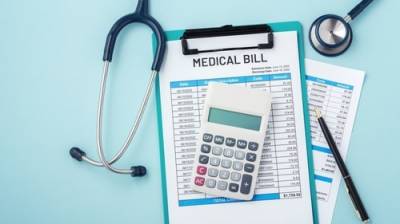 Managing healthcare expenses, as well as medical bills, can be difficult. But there are ways to decrease these expenses and potentially reduce your medical debt. Here are some important factors to consider when dealing with medical debt in Texas.
Managing healthcare expenses, as well as medical bills, can be difficult. But there are ways to decrease these expenses and potentially reduce your medical debt. Here are some important factors to consider when dealing with medical debt in Texas.
Understanding the Medical Bill
To avoid confusion, it is crucial to know why you are being charged in medical bills. These bills can contain complex codes and language that might not be familiar to you. You can ask for a detailed bill that explains the cost of each service. This can help you identify mistakes or repeated charges that you can question.
Insurance Verification
Ensure that your healthcare provider has all the correct insurance information. Miscommunications between the provider and the insurance company can sometimes result in charges that should have been covered. Review your insurance policy to understand what is covered, and cross-check it with your bill. This will help you identify any discrepancies that need to be addressed.









